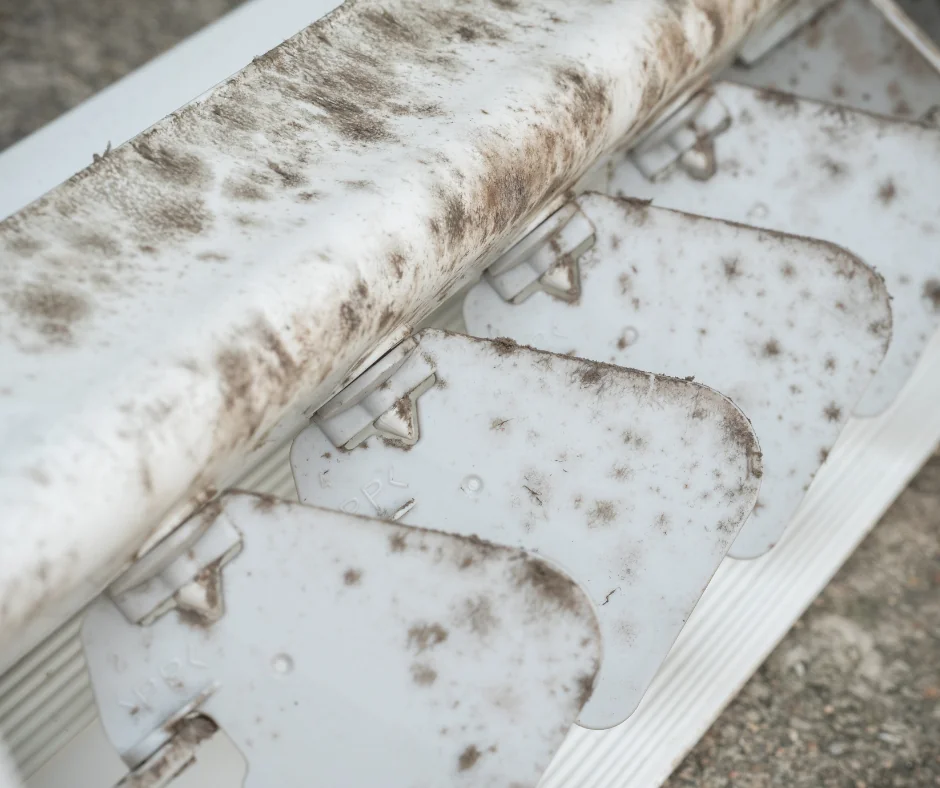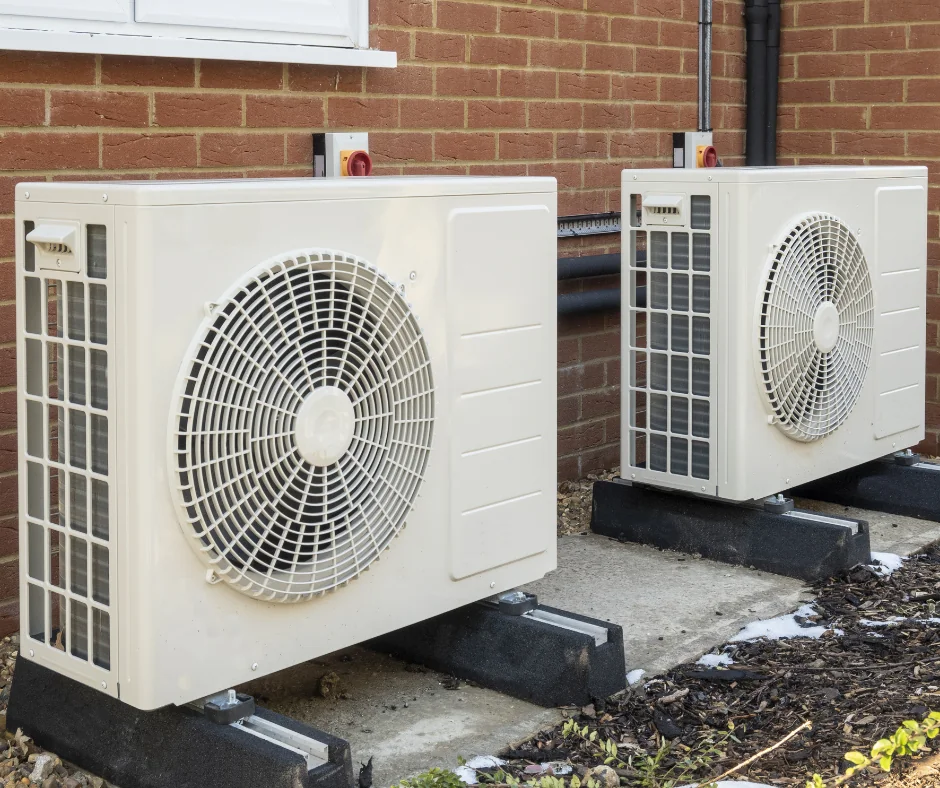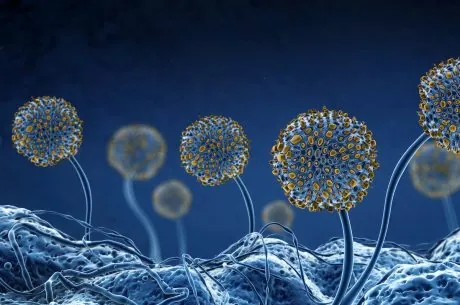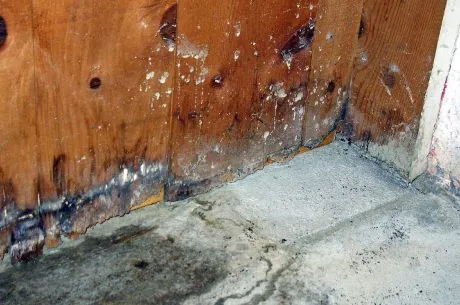Heat pumps are a great way to keep warm air in your home during the winter and cool in the summer, and many people in warmer climates could not survive without their air conditioner pumping cool air during the summer months. If you have a “mold in heat pump” problem, it can cause significant problems with either machine’s functionality and performance.
Mold can also cause health problems, including throat irritation, nasal stuffiness, and allergic reactions when mold is left untreated to grow and spread. HVAC (Heating, Ventilation, and Air Conditioning) units can quickly and easily spread mold in the air throughout your entire house.
If you suspect mold in your house, it is best to reach out to a professional immediately. If the mold affects an area smaller than ten square feet, you may attempt to treat the mold yourself using proper care, following safety advice, and using some of the techniques in this blog.
Mold in Heat Pump: Why Do Heat Pumps Get Moldy?
The speed with which the fins in the coil and fan blower wheel spin is determined by the air quality passing through it. It might be clogged or filled with dust and grime. When moisture enters, this is a great location for mold to grow. If there is moisture in the air, mold may appear faster.
When the heat pump becomes wet inside, it provides a perfect growing environment for mold spores that can be present in the air or on surfaces such as furnishings or clothing. Since heat pumps produce moist air due to condensation, if there are any inactive mold spores present, they will grow and multiply quickly under these conditions.
Even though you may not see any visible mold on the outside of your heat pump, it does not mean that there is not any mold present on the inside. According to the United States Department of Energy, mold is a bigger issue than just about anybody suspects because it can thrive in closed and semi-closed environments such as heat pumps.
Heat pumps that contain mold growth often suffer substantial degradation in their performance and efficiency because when patches of mold grow on internal components such as cooling coils, they prevent proper airflow. Inefficient airflow can cause the heat pump to freeze or overheat and eventually shut down, requiring expensive repairs.
If you have a moldy heat pump, you may also notice an increase in your energy bills as your unit struggles to work properly.

What Causes Mold in Heat Pumps?
The air conditioner works similarly to the heat pump to regulate the air in your home. The main difference is that the air conditioner blows cold air into the room, while the heat pump heats up the air. Air conditioners can also get moldy if they are not properly maintained and there is water leakage inside.
How Can You Check for Mold in Your Heat Pump?
If you think that you may have a mold problem in your heat pump or air conditioner, it is best to call a professional HVAC technician to inspect it. However, there are some things that you can look for on your own. Just be sure to wear gloves and an N-95 mask to avoid inhaling mold spores.
If the unit is outside, check for any water leaks around the seams or drainage ports. Also, check for any standing water near the unit. If the unit is inside, look for any water stains on the ceiling or walls and also check the coils or fins of the unit for any signs of mold growth.

How Can You Treat Mold and Mold Spores in Your Heat Pump?
If you have a small area of mold (less than 10 square feet) that you would like to treat yourself, there are some methods that you can try. Keep in mind that these are not the same methods a professional would use to remove mold.
Because of the potential health issues caused by mold, it is important to always take steps to protect yourself and your family. Wear proper PPE (personal protection equipment) at all times, including gloves, goggles/protective eyewear, and an N-95 face mask.
- Turn off your heat pump or air conditioner unit. Open up your heat pump or ac unit and inspect the filter or insulation for dampness and mold.
- Remove any damp filters or insulation and seal them up in a plastic bag.
- Suck up water in the pump with a wet vac and use towels to dry the heat pump interior.
- Carefully apply a disinfectant or mold killer directly to the mold and wipe it down.
- Hand-dry each component of the HVAC system before installing new filters and insulation.

How to Prevent Mold in Your Heat Pump
Even if you have treated the mold in your heat pump, it is important to take some preventative steps to help keep it from coming back.
- Make sure that the AC unit or heat pump is properly drained and does not have any standing water near it.
- Clean the coils and fins of the unit regularly using a coil cleaner or a brush.
- Check for any water leaks around the seams or drainage ports and fix them as soon as possible.
- Install a dehumidifier in your home to help control the humidity level. Note that a dehumidifier does not kill mold, but it does prevent it.
- Run an air conditioner or dehumidifier in your home during the winter to help dry out the air and prevent mold growth.
Mold is not something that you want to risk exposing your family to, especially if there are health problems such as asthma or allergies in the family. If you see any signs of mold in heat pump, take the necessary precautions right away.
When You Suspect Mold in Your Heat Pump, Don’t Hesitate to Reach out to PuroClean!
Mold in heat pumps is a common issue, even if it does not seem like there is any moisture present. It is important to be aware of the signs of mold growth in HVAC units and to take action right away if you notice mold or any signs of it. Mold can cause a number of health problems, so it is best to avoid exposing your family to it whenever possible.
At PuroClean, our technicians are trained to handle your mold problem with care and expertise. We know how important it is to have a mold-free environment for you and your family, so we take every step necessary to ensure that your home is safe. If you have mold growing in your heat pump or air conditioning unit, please do not hesitate to reach out to your local PuroClean office 24/7.



